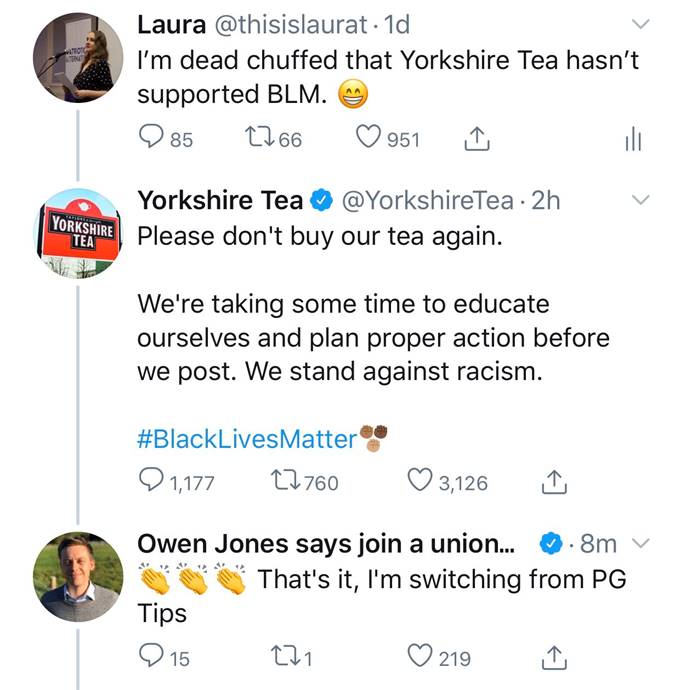Why are so many brands bad at social media? Because they’re not authentic
Social media platforms are rightly held to account for toxic content now, but major firms still don’t strike the right tone.
Some of the world’s biggest brands are pulling their advertising from Facebook in protest at the company’s lack of progress in stemming hate speech and misinformation on the platform. The boycott includes global brands like Starbucks and Adidas. Interestingly, they still have their Facebook pages live, so it’s not a total boycott.
Is this an attempt to wield a bit of influence by withholding advertising dollars, or are companies just running for cover as Facebook wrestles with the spread of toxic content? As the platform becomes an ideological battleground during the upcoming US election campaign, it’s likely advertisers don’t want to get caught up in the middle of all the mudslinging and name-calling.
But this controversy is nothing new. Back in 2013 Facebook was called out by the Everyday Sexism Project for turning a blind eye to pages showing images of violence towards women. Everyday Sexism targeted brands who were advertising on the platform and whose ads would inadvertently appear alongside the pages in question.
I was heading up social media at Nationwide Building Society at the time and we quickly pulled our ads. We called on Facebook to make changes, becoming an active part of the advertising industry group that developed a new digital code of conduct.
Seven years on and it seems like the problem is back, but in truth it never went away. Social media companies are being rightly held to account to manage some of the worst excesses and stop the bad actors, but ultimately this is a huge beast with millions of comments being added every day.
The challenge for the social media platforms is that they are damned either way. If they cite ‘freedom of speech’ in their decisions to allow content to stand, they are pilloried. When they ban users, as Twitter did recently with Katie Hopkins, or put warning labels on content, such as Donald Trump’s posts, they’re accused of censorship.
But what I find really interesting about all of this is just how bad many organisations still are when it comes to using social media. The Facebook boycott shows that big brands are still nervous of a channel they know they need to engage with but are worried they can’t control in the way they can with other forms of marketing.
Look at Blackout Tuesday, a day of action in response to the death of George Floyd. The original intention was for the US music industry to blackout all promotional activity for the day and replace it with anti-racism information using the hashtag #TheShowMustBePaused. Instead companies, celebrities and ordinary folk posted black squares on their social feeds, tagging #BlackLivesMatter, defeating the object of the campaign.
Kudos then to Yorkshire Tea which, not only admitted it hadn’t taken part in Blackout Tuesday because it was “taking time to educate ourselves” about racism, it did so by dissing a right wing blogger by telling her not to buy its tea.

Now this was hardly a hammer blow in the battle against racism, but it was smart and brave marketing. If you know anything about Yorkshire Tea’s social media, you’ll also know this was an authentic tone of voice.
For me that’s the main reason why so many brands are poor on social media. They are not authentic and present themselves online in a way that doesn’t reflect what’s actually going in the business.
Don’t tweet about your commitment to diversity and then be surprised if you get called out because your annual report reveals that your board is almost exclusively white men. If you’re Virgin Media, don’t post a ‘we’re all in it together’ style video about the virtues of your broadband during lockdown if your customers are struggling to get a decent service while working from home.
In my first ever experience of presenting a social media strategy to a board several years ago, I was asked “how do we turn it off if we don’t like what people are saying about us?” My answer then, as now, is that you don’t.
Social media can be a very powerful communications channel because it connects you directly with the people you want to talk to. But it needs to be built on the principles of authenticity, transparency and honesty that should be at the heart of every business.
If you can’t demonstrate those values – if you can’t be open and honest with your audience – then don’t try to fool them on social media. People will sniff it out, challenge you and hold you to account.
And very quickly your clever social media campaign will turn horribly wrong.
